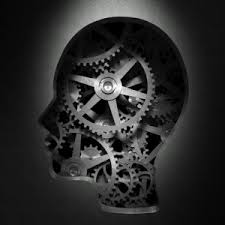pokerfanatic has been a member of FTR since August of 2004, and has over 1,400 posts in the FTR Poker Forum. Below pokerfanatic discuss thetopic of tilt, which as you know, is one of the worst enemies of the poker player.
pokerfanatic’s Psychology of a Tilting Player
I got to thinking about tilt, which lead me to ask, what is tilt? Why do players go on tilt? What emotional attachment does the mind have with the situations at the table that forces you to go on tilt? These are things I plan to explore as we venture into the mind of a tilting poker player. I honestly can say I have been victim of tilt, though I’m not sure why. However, the fact remains that I tilt, and even today, before I started this guide, I got a couple of 70/30 hands cracked, which bothered me. This is something I planned to stop tilting and explore why players, even with a solid base in the game, such as me, would tilt. As Soupie once said to me and many other players, “If I tied a brick to your nuts and had people throw rotten tomatoes at you, would you tilt?” I think every male that plays poker would promptly respond, “No, no way!” They might not use those exact words, but it would be something along those lines. The meaning behind this is isn’t that Soupie want to tie a brick to your balls, it is that he wanted to make a startling statement to lead players like myself to realize that if the conciseness of tilt is that harsh, would you tilt? That answer is obviously no, so why do players tilt? I believe it has to do with the consequences of tilting not being harsh enough to some, so those players continue to tilt. Soupie’s point was that if the consequences of tilt are severe enough, you won’t tilt.
So the question is this: Why do players go on tilt? Well, the first reason is one that I personally have experienced. For example, you are playing 25/50nl at your local casino, you get AA, and you flop an ace. There are no possible flush or straight draws on the board, but some guy shoves in on you. You call, and he shows QQ. For this example, we will say none of the AA or QQ suits overlap, so preflop it’s an 80/20. That’s something all of us know, and if you don’t, you should Wink. Let’s say the flop hits Ac2d7s. You basically have a huge grip on the hand and the guy is nearly drawing dead. He is drawing a 274:1 shot with the runner runner Qs. The turn hits Qd, but even with that, he only improved to a 2.3% to hit that Q on the river. This means that you still have a man handle on the hand he’s got 1 out, 45:1 shot. Then it comes…the 45:1 shot gets there. He hits the Q and you lose (let’s say) 3K, and now you are left with 2K. The natural reaction for some people is to get angry and pissed that that guy got so lucky. The mind knows the math, and you are mad because you should have made an easy 3K off this guy. Instead, you are giving this guy a miracle 3k. You feel attached not to the 3k but the 6k pot he just dragged in. Mentally, you have to handle this sudden disappointment. In the mind of the tilter, his loss is not only the 6k pot, but he also lost his frame of mind, the rest of his buy-in, and maybe more. Sometimes, he starts playing more passively and allows people draw at him, therefore sucking out on him. On the other hand, he might play too many hands too aggressively and essentially throw away his money. Why do we fall victim to this? It’s actually quite simple. The human mind tricks us into believing the money was ours before the hand was over. When we are disappointed, the mind sends electrical impulses though the body, and we either turn instantly pissed where we want to fight, or we get ready to take our flight. It’s the simple fight or flight syndrome. Everyone handles the fight or flight emotion differently, but at a poker table, you have to completely ignore it. You lost 3K, but you have to force a smile and think in your mind how close you were to taking another 3K. You still have 2K in front of you, which means you still have ammunition right? Each of the next 274 times you shove in that situation you’ll win. You lose 3K one time but win 3k the other 274 times, which gives you a total of 822,000 in the long run. So, why tilt? Smile and realize the math…one of the reasons I’m writing this guide is to help myself understand why I sometimes tilt and how to prevent it.
Ego is another big thing that affects poker players. Why are we egocentric? In today’s game, the game is not thought of as just a male dominated game, but we must realize that males still make up about 90% of the players, so males still have a majority in the game. For that reason, we grow up thinking that because we are male, we have to be manly about how we act and present ourselves to the community. We bring that ego to the poker table, and we think if we take a bad beat we have to talk crap and act all broody. Also, when someone talks trash to us, we automatically defend ourselves by sending more trash back at them. This is very childish, yet, I personally have been a victim to this as well. When you are talking trash, your mind isn’t where it should be. You effectively tilt, and you start playing more hands against that player to try to bust him or take a chunk of change off him…either way it’s a bad thing. Why players give a guy that talks shit the satisfaction of tilting them I just don’t understand. What I really don’t understand is why I never realized all of this until now. In my mind it so clear why not to tilt but yet, I still do it? Others might be in the same situation as me but perhaps not. Wherever you might be, it should be clear to you that tilt is a complex idea that we know we shouldn’t do, but sometimes we still do, which leads me to ask another question. If we know that tilting is –EV then why do we do it? Well, to answer that question in regards to our ego, as a poker player you have to be completely willing to take verbal abuse from the big mouth at your table. Live, it’s tougher to handle because you can’t just block their chat and ignore it. The individual could be up in your face talking all sorts of trash, making it all the more difficult not to deck him. If you hit him, you will get arrested and banned from the casino. You have to let the natural human mind set of the egocentric male go. It is a lot easier said than done, TRUST ME.
Another common tilt factor is completely outside of poker. A wife, girlfriend, significant other, whatever it might be, might get mad at you and an argument starts. Afterwards, you don’t want to be around that person so you decide it would be a good idea to go play some poker. Do you actually think that you can focus on poker right after you got in an argument with that person? The answer 95% of the time is absolutely not! Your mind is not on the game. There is no way you can focus and play your best poker. The mind, even though you might not think about it, is sub concisely thinking about that fight you just had while you are at the table. You need your mind to be 100% focused on the game in all aspects, or it’s going to be tough having a winning session. The mind is all we have in this game…the mind in cards. Cards won’t bet themselves or even fold themselves. The player has to make thought-out decisions each and every time he is dealt a hand and each and every street he sees on that hand. Fortunately for me, I have never fallen victim to this type of tilt. This is really simple to avoid. If you have anything heavy on your mind, you can’t play 100% correct poker, or you can’t make well thought out plays, don’t play at all. Go to the table with a positive attitude. If you don’t walk up to that table with that winning attitude, you’re dead in the water. The fish will snap off the line you try to hook them with unless you get extremely lucky yourself.
Getting frustrated by cold cards is another form of tilt. What ends up happening is the player will finally get a good hand and get married to it. Those, when they get it cracked, go back to the problem I stated first. The “odds tilt,” I guess you could call it. The table coach syndrome, the player knows the odds and how far ahead they were, so they get mad. Their one good hand got cracked, and they tilt the rest of their stack away or at least a good portion of it. I have fallen victim to this as well. I tilt entirely too much, but fortunately, it’s probably one of the only leaks in my entire game. This form of tilting happened to me because I was playing extremely tight. I had about a 10 to 14% VP$IP…obviously horrible. Now I’m running around 15 to 17%, much better. The big cause of this type of tilting is being a weak, passive player because you are afraid to suffer a bad beat. To prevent this, just play hands the way you know they should be played…don’t be a weak, passive player.
I tilt because I feel I got screwed out of money that should have been mine. The classic “odds tilt” is the main reason I end up on tilt, now, why is that? Well, I sit there and play and make most my profit in a small group of hands. When I get a 70/30, 80/20, 90/10, or whatever it might be, cracked, my mind takes that as, “That lucky SOB! I can’t believe he plays that bad!” That is such a poor thinking process, and sadly, I know it. I have been working on trying to fix this flaw in my game by focusing on the long term. My definition of tilt is this: frustrations resulting from short term losses, losing streaks, or problems in one’s personal life. If you get frustrated, even a little, like I do, and have been working on not tilting, try to smile when you suffer a bad beat. If you smile, it forces the mind to think and act in a totally opposite way of what it wants to. You smile because, as the theory of poker states, “If you play your hand any differently if you see the player’s cards then you would if you didn’t see them, then you lose. If you play your cards exactly the same even if you did see the player’s cards, then you gain.” This basically tells us this in consideration to tilt: If I played the hand 100% correctly knowing that player’s cards and I wouldn’t have changed a thing, then in the long run in that situation I will gain money. So, what’s the point of tilt? For winning players, there is no point or reason to tilt…it’s a –EV type action.
Here’s the million dollar question: How can we keep ourselves from tilting? My answer is this: Don’t think about the short term results, and don’t play if you are not concentrating fully on the game. If you have anything else on your mind, don’t play if you can avoid it. Outside tilting for some is the only way they can be tilted. This is one thing you most avoid at all costs. So as I said before, to avoid “odds tilting” smile and think about the math in the long run, as well as the theory of poker. Avoiding “outside tilting” is even easier…just let the crap roll off of your back and fix it when you have time to concentrate solely on that situation and not split between it and poker. For dealing with “cold card tilting,” don’t play weak passive unless the situation calls for it. The situation which calls for weak passive play doesn’t come up much, but it will from time to time, so there is this exception in some rare cases. Tilt is not what we need or want to be doing, but we can use it against opponents that are capable of going on tilt. One form of tilt I didn’t mention is the “bluff show” to get players on tilt. I have never experienced going on tilt because of this, so I know nothing about it. I would love to talk about the mind set of why a player might tilt. You show them a bluff, but all I can do is guess that this type of tilt would fit into egocentric type tilting. So let’s tell ourselves this at the tables to help avoid tilt:
1) Don’t be egocentric.
2) Think about the theory of poker.
3) Think about the long term math.
4) Don’t think about outside issues you might have, think about and concentrate on poker.
5) Play your game and don’t let the events at any one session change your play.
That’s all I can think of, until next time, don’t tilt and outplay your opponents. Regards, pokerfanatic.
Submit your review | |










